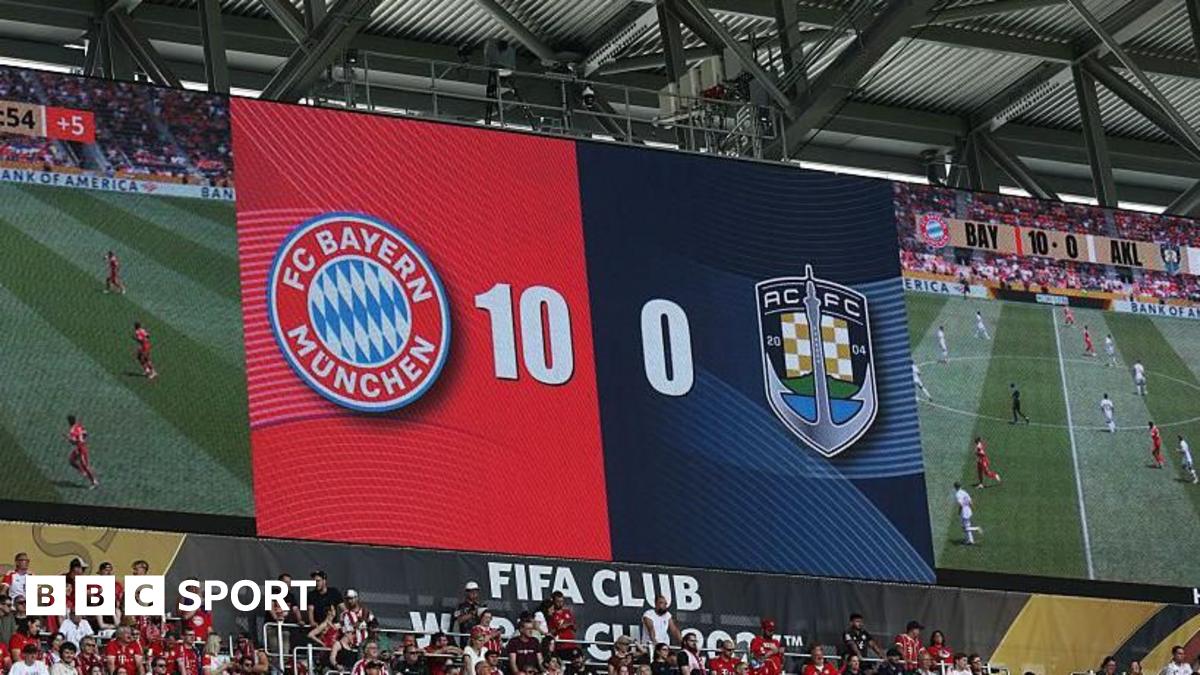Bayern Munich Dominates Auckland City in Lopsided Club World Cup Match

A staggering football mismatch unfolded at the TQL Stadium in Cincinnati, as German giants Bayern Munich decimated New Zealand part-timers Auckland City with a resounding 10-0 victory in the expanded Club World Cup. The lopsided result, which set a new Club World Cup record for the highest goal margin, highlighted the vast chasm between professional and amateur football, raising significant questions about the new 32-team tournament format.
From the outset, Bayern Munich asserted their dominance. Kingsley Coman opened the scoring within five minutes, setting the tone for what would become a goal-fest. By halftime, Bayern had already netted six goals, matching a previous Club World Cup record. The goal-scorers included Coman, Sacha Boey, Michael Olise, and Thomas Muller. In the second half, Jamal Musiala, who entered as a substitute for Harry Kane, impressively bagged a hat-trick, while Muller sealed the crushing win with his 250th goal for Bayern, bringing the tally to double figures for the first time since August 2021.
The disparity between the two clubs extended far beyond the pitch. Bayern Munich peppered Auckland City’s goal with 31 attempts, 17 of which were on target, and maintained 71% possession, while Auckland managed only a single shot. Off the pitch, the financial gulf was immense. Auckland City reported revenues of approximately £488,000 for the last financial year, dwarfed by Bayern’s €951.5 million (£810 million). Player salaries further illustrate this divide: Auckland’s amateur players earn a salary cap of around £66 per week, a stark contrast to Harry Kane’s reported £400,000 per week at Bayern. This means it would take Auckland’s highest-paid player about 117 years to match Kane’s weekly earnings. Furthermore, Transfermarkt values Auckland’s squad at €4.58 million (£3.9 million) compared to Bayern’s €903.5 million (£769 million).
Auckland City, the sole representatives from Oceania, qualified for the Club World Cup as the dominant winners of the OFC Champions League, securing 13 titles since 2006. Their participation in this year's tournament was also facilitated by New Zealand's two professional teams, Wellington Phoenix and Auckland FC, playing in Australia's A-League and thus being barred from competing in continental club competitions within the Oceania Football Confederation. This unique situation allows amateur players, who hold day jobs as primary school teachers, insurance brokers, barbers, sales representatives, car retailers, delivery guys, and veterinary supply warehouse supervisors, to compete against global football superstars.
The expanded Club World Cup format, which has drawn legal complaints from player unions and scrutiny from fans and pundits, faces intensified questions following this extreme mismatch. Critics argue that such games are not entertaining and are better suited for pre-season friendlies. Fans expressed discomfort, while Bayern's Michael Olise bluntly stated he felt no sympathy for Auckland. Auckland's interim coach Ivan Vicelich acknowledged the reality of playing against a top global team, calling it a











